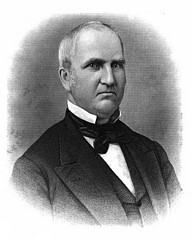“Mr. Speaker, I said the honorable member was a liar it is true and I am sorry for it. The honorable member may place the punctuation where he pleases.”
— Richard Brinsley Sheridan, when asked to apologize to another member of Parliament
“Mr. Speaker, I said the honorable member was a liar it is true and I am sorry for it. The honorable member may place the punctuation where he pleases.”
— Richard Brinsley Sheridan, when asked to apologize to another member of Parliament
Esaw Wood sawed wood.
Esaw Wood would saw wood!
All the wood Esaw Wood saw Esaw Wood would saw. In other words, all the wood Esaw saw to saw Esaw sought to saw.
Oh, the wood Wood would saw! And oh, the wood-saw with which Wood would saw wood.
But one day Wood’s wood-saw would saw no wood, and thus the wood Wood sawed was not the wood Wood would saw if Wood’s wood-saw would saw wood.
Now, Wood would saw wood with a wood-saw that would saw wood, so Esaw sought a saw that would saw wood.
One day Esaw saw a saw saw wood as no other wood-saw Wood saw would saw wood.
In fact, of all the wood-saws Wood ever saw saw wood Wood never saw a wood-saw that would saw wood as the wood-saw Wood saw saw wood would saw wood, and I never saw a wood-saw that would saw as the wood-saw Wood saw would saw until I saw Esaw Wood saw wood with the wood-saw Wood saw saw wood.
Now Wood saws wood with the wood-saw Wood saw saw wood.
Oh, the wood the wood-saw Wood saw would saw!
Oh, the wood Wood’s woodshed would shed when Wood would saw wood with the wood-saw Wood saw saw wood!
Finally, no man may ever know how much wood the wood-saw Wood saw would saw, if the wood-saw Wood saw would saw all the wood the wood-saw Wood saw would saw.
— W.E. Southwick
Anthologist Carolyn Wells writes, “Well, you don’t have to read it.”
The New York Times ran a bewildering headline on May 6, 1965:
“Albany Kills Bill to Repeal Law Against Birth Control”
… a triple (quadruple?) negative.
“As you leave the town of Franklin, Pennsylvania, you encounter a sign: END BRAKE RETARDER PROHIBITION,” notes Edward Wolpow in the May 2011 issue of Word Ways. “For those for whom this is relevant, they are, presumably, able to follow the instructions quite quickly, since it is, after all, a road sign. But I still can’t figure it.”
In a 1975 interview with Business Week, Henry Kissinger said, “I am not saying that there’s no circumstances where we would not use force” against Saudi Arabia. Is this what he meant to say?
At a New York conference of linguistic philosophers in the 1950s, Oxford professor J.L. Austin noted that while a double negative often expresses a positive — as in “not unattractive” — there is no example in English of a double positive expressing a negative.
Columbia philosopher Sidney Morgenbesser, who was in the audience, sarcastically replied, “Yeah, yeah …”
In Ralph Roister Doister (1553), Ralph asks a scrivener to compose a love letter to Dame Christian Custance. But when Matthew Merrygreek reads it for her, Dame Custance is shocked to hear an insulting diatribe. This is certainly not what Ralph intended, but the scrivener confirms that he copied the letter accurately, and Merrygreek read it verbatim and in full. What’s going on here?
Sweet mistress, whereas I love you nothing at all–
Regarding your substance and richness chief of all–
For your personage, beauty, demeanour and wit,
I commend me unto you never a whit.–
Sorry to hear report of your good welfare,
For (as I hear say) such your conditions are,
That ye be worthy favour of no living man,
To be abhorred of every honest man,
To be taken for a woman inclined to vice,
Nothing at all to virtue giving her due price.–
Wherefore, concerning marriage, ye are thought
Such a fine paragon, as ne’er honest man bought.–
And now by these presents I do you advertise
That I am minded to marry you in no wise.–
For your goods and substance, I can be content
To take you as ye are. If ye mind to be my wife,
Ye shall be assured, for the time of my life,
I will keep you right well from good raiment and fare–
Ye shall not be kept but in sorrow and care–
Ye shall in no wise live at your own liberty.
Do and say what ye lust, ye shall never please me;
But when ye are merry, I will be all sad;
When ye are sorry, I will be very glad;
When ye seek your heart’s ease, I will be unkind;
At no time in me shall ye much gentleness find,
But all things contrary to your will and mind,
Shall be done–otherwise I will not be behind
To speak. And as for all them that would do you wrong,
I will so help and maintain, ye shall not live long–
Nor any foolish dolt shall cumber you but I.
I, whoe’er say nay, will stick by you till I die.
Thus, good mistress Custance, the Lord you save and keep;
From me, Roister Doister, whether I wake or sleep–
Who favoureth you no less, ye may be bold,
Than this letter purporteth, which ye have unfold.
happify
v. to make happy

procellous
adj. stormy
naufragous
adj. causing shipwreck

Cushing Biggs Hassell’s thousand-page History of the Church of God (1886) is notable for a single sentence — this one, on page 580, beginning “The nineteenth is the century …”
It’s six pages long, with 3,153 words, 360 commas, 86 semicolons, and six footnotes. Many regard it as the longest legitimate sentence ever published in a book.
Essentially it’s one long indictment of the 19th century, proving for Hassell that “after all our progress, this is still a very sinful and miserable world.” Why he felt he had to show this in a single sentence is not clear.
A story has been told of a graceless scamp who gained access to the Clarendon printing-office in Oxford, when the forms of a new edition of the Episcopal prayer book had just been made up and were ready for the press. In that part of the ‘form’ containing the marriage service, he substituted the letter k for the letter v in the word live, and thus the vow to ‘love, honor, comfort,’ etc., ‘so long as ye both shall live,’ was made to read, ‘so long as ye both shall like.’ The change was not discovered until the whole of the edition was printed off.
— Ballou’s Monthly Magazine, October 1870
When Teddy Roosevelt was sworn in in 1901, the New York Times printed a B in place of an O in one story and recorded that “surrounded only by a few friends, Theodore Roosevelt took his simple bath to defend and carry out our Constitution.”
“The most amusing feature of the above,” reported the Bookman, “is due to an English newspaper which quoted the paragraph, did not recognise the misprint and went on to comment upon it with perfect seriousness.”
In 1867, the finance department of the city of Madrid employed a man named Don Juan Nepomuceno de Burionagonatotorecagageazcoecha.
If he had moved to northern Bohemia and become “deputy-president of the Food-Rationing-Winding-Up-Commission,” his job title would have been Lebensmittelzuschlusseinstellungskomissionsvorsitzenderstellvertreter.
In a perfect world he would then moonlight as a Gesundheitswiederherstellungsmittelzusammenmischungsverhältniskundiger, Bismarck’s term for an apothecary.
In his library he would keep the Antipericatametanaparbeugedamphicribrationes Toordicantium, mentioned by Rabelais in Gargantua and Pantagruel, and Thomas Love Peacock’s Headlong Hall, in which the phrenologist Mr. Cranium describes anatomical structures as osseocarnisanguineoviscericartilaginonervomedullary and osteosarchaematosplanchnochondroneuromuelous.
And he would vacation in Bristol, whose spa waters were described by the English medical writer Edward Strother (1675-1737) as aequeosalinocalcalinoceraceoaluminosocupreovitriolic.
Or perhaps he should just stay in Madrid.
remugient
adj. bellowing again